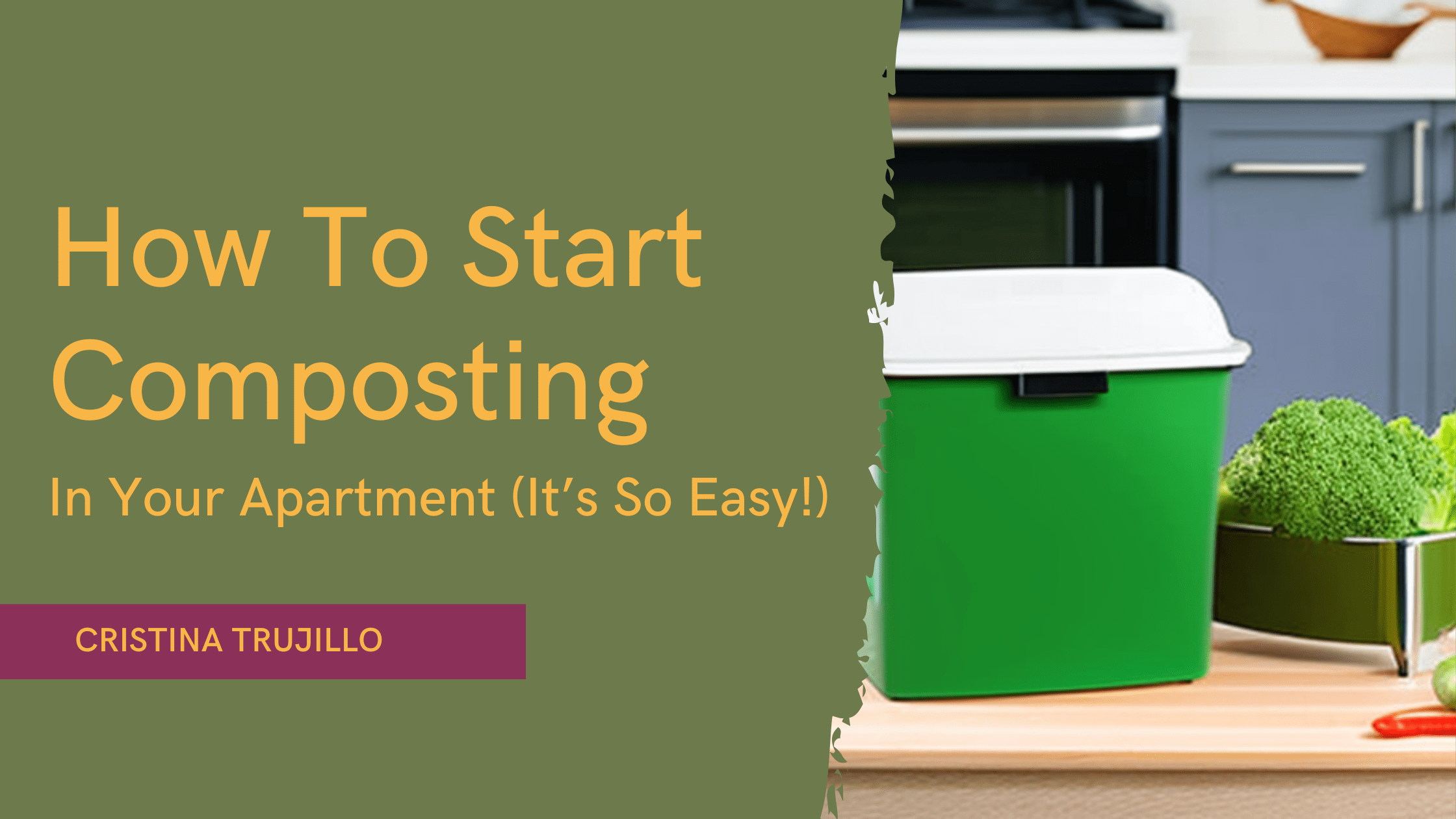Introduction
Are you interested in composting but don’t know where to start? Composting is a great way to reduce your waste, help the environment, and even grow your food!
Despite what many people think, composting is very easy to do – and it doesn’t have to be smelly or gross. It can be a very rewarding experience.
There are many different ways to compost, but the most important thing is to get started! This article will show you how to start composting in your apartment so that you can start reducing your waste and helping the environment.
How To Start Composting In Your Apartment
What You Need To Start Composting: The great thing about composting is that you don’t need much to get started. You will need a compost bin, some organic material (such as food scraps, coffee grounds, and cardboard/newspaper), and some soil or compost to add to your bin. You can buy a compost bin from any home improvement store, or you can make your own. The containers should be airtight and large enough to hold the amount of compost that you plan to make. If you don’t have outdoor space, you may want to look into indoor bins. These are specially designed to be space-efficient and are great for small apartments. Just make sure that you have enough room for the bin and regular access to a power outlet for ventilation.
The Different Types of Composting: There are two main types of composting – aerobic and anaerobic. Aerobic composting requires oxygen, while anaerobic composting does not. For most apartment composting, aerobic composting is the best option. This uses bacteria and fungi to break down the organic material and create compost. Anaerobic composting, on the other hand, uses worms and other organisms to create more nutrient-rich compost. This method is best suited for people with outdoor space, as many of the organisms require a higher temperature than can be achieved in an apartment.
How To Compost In Your Apartment: Once you’ve got your compost bin ready to go, you’re ready to start composting! Regularly add your organic material to the bin, such as food scraps, coffee grounds, and cardboard/newspaper. You can also add paper towels, tea bags, and shredded paper to the mix. Make sure that you mix the material and add water, as this helps break down the material faster. Try to keep the material damp, but not saturated. Finally, add a layer of soil or compost to the top of the bin. This helps to speed up the composting process, as well as providing essential nutrients for your compost.
The Benefits of Composting: Composting offers many benefits, both to you and the environment. Composting reduces the amount of waste that is sent to landfills, as it can be used to enrich the soil and help plants grow instead. Composting also helps you save money, as you won’t need to buy as much fertilizer or soil amendments. You’ll also have easy access to compost for your garden or potting projects! How To Get Started: The best way to get started is to research local composting programs. Many cities have programs in place to help make composting easy and convenient. Some cities even have special bins for composting. You can also check online for tutorials and tips on composting. There are also many online communities dedicated to composting, where you can get advice and support from experienced composters.
FAQs About Composting:
Q: How long does it take to compost?
A: It will depend on the type of composting you’re doing and the size of the bin, but most compost bins should be ready to use within a few weeks.
Q: What can I compost?
A: You can compost most organic materials, such as food scraps, coffee grounds, cardboard/newspaper, paper towels, tea bags, and shredded paper.
Q: Is composting smelly?
A: Composting can be smelly, but it doesn’t have to be. Make sure you’re adding the right ratio of materials, as well as mixing and keeping the material damp (but not saturated). This will help reduce any odors from composting.
Conclusion: Composting is an easy and rewarding way to help reduce waste and help the environment. With the right equipment and a bit of know-how, you can start composting in your apartment in no time. Remember to research local composting programs, as well as tutorials and tips online. And don’t forget to ask questions if you’re ever in doubt!
